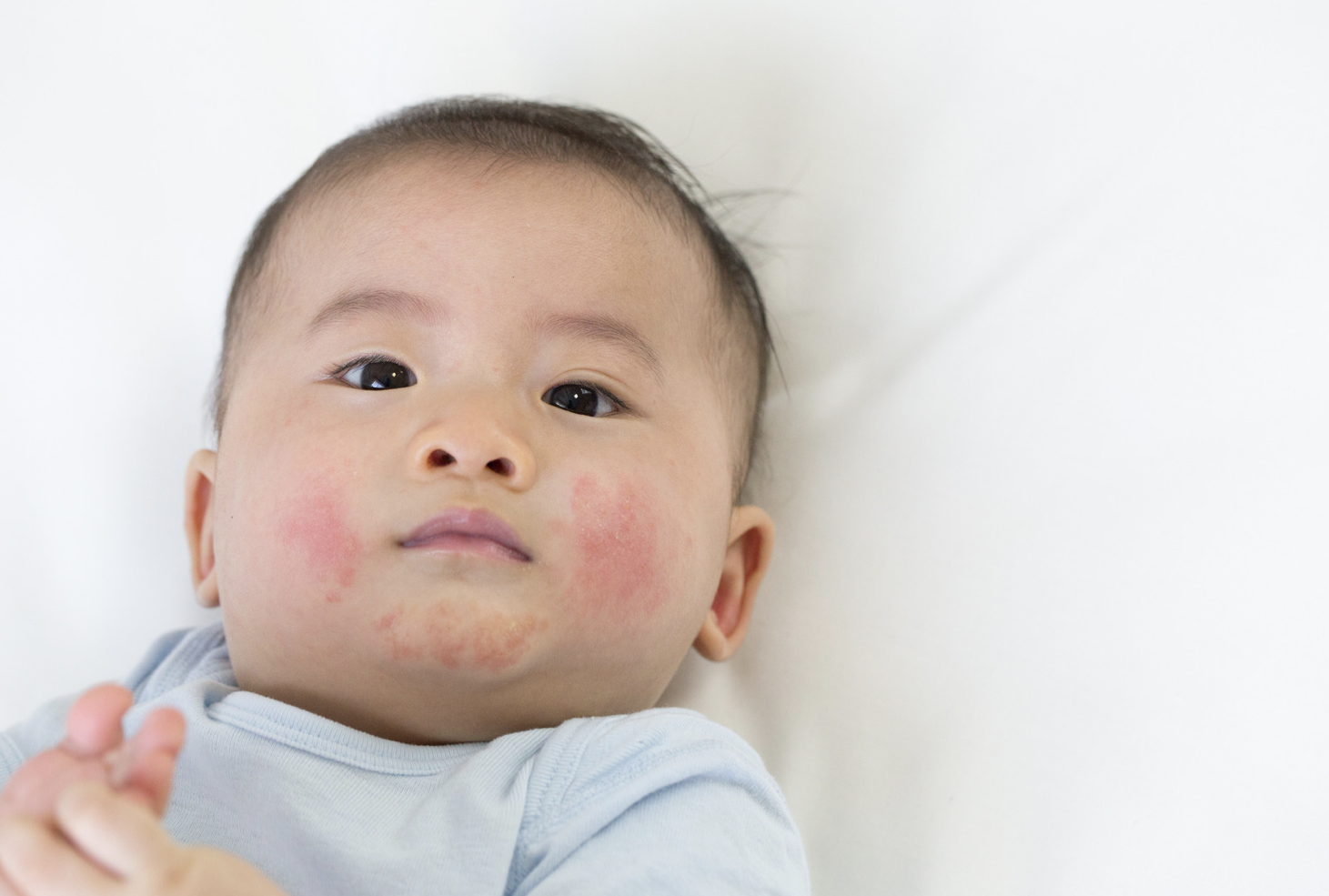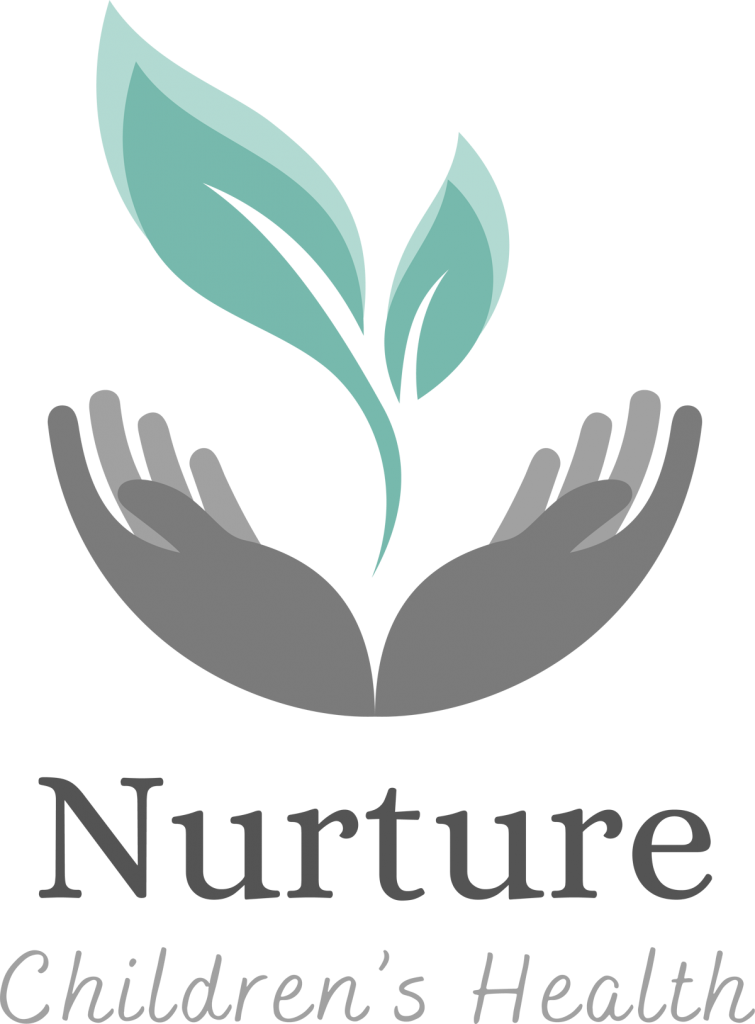Natural treatments for childhood eczema

Natural Remedies for Children’s Eczema
Eczema is incredibly common and can develop at any age. The youngest bub I’ve ever treated with dry flakey skin was only two weeks old.
Despite how common childhood eczema is, it can be so hard for families to find answers and effective treatment options. On top of being frustrating and painful, eczema can cause sleep issues, causing frequent wakings from pain and discomfort.
The skin is the largest organ of a child’s body and it has a lot of important functions. When it becomes inflamed and irritated it can easily become infected (and then even more painful). The skin is actually an organ of detoxification, it also helps regulate body temperature, and is involved in the absorption of vitamin D. Skin also protects the insides from nasty bugs that children come into contact with in their environment, so it’s important to make this first line of protection against disease as strong as possible.
Eczema is rarely the result of one single cause but is often a reflection of multiple, seemingly minor, things not going quite right inside the body.
There are many things that can trigger and worsen eczema. Resolving the condition once and for all involves addressing the underlying causes. Things such as synthetic soaps, cleaning agents, heat and stress can worsen the symptoms of eczema, but they are rarely the sole reason behind the issue.
Causes of Childhood Eczema
I find that there are two common causes of eczema for children and babies;
1. Eczema and undiagnosed allergies or intolerances
Undiagnosed allergies and intolerances are associated with treatment resistant eczema. A 2010 study of over 2000 children with eczema found that around 60% had a high sensitivity to certain foods, while a 2016 study found that environmental irritants correlated with the development of childhood eczema. Both environmental and food triggers can worsen childhood eczema. The top five most common food reactions among children in Australia are egg, peanut, dairy, soy and wheat, while the most common contact allergies are to dust mites, pet hair, pollen and mould. When left untreated, allergies and intolerances can cause inflammation, which can be reflected on the surface of the body.
2. Low or suboptimal nutritional levels
Suboptimal nutritional status prior to conception and during pregnancy can increase the risk of babies developing eczema. Nutrients such as choline, vitamin D and iron are involved in the healthy development of not only the skin, but the immune system as well. It’s not uncommon for iron and vitamin D levels to be low during pregnancy, but unfortunately this can lead to babies being born with a poor nutritional profile. Some of these nutrients can be difficult to absorb through milk feeding alone, and as the child grows their nutritional requirements increase, so unfortunately the eczema symptoms can worsen.
For longterm change, we need to identify and resolve the cause. At the same time, we also need to manage the discomfort while deeper healing takes place.
How to soothe itchy eczema skin
While we figure out the source of the issue, it’s important to manage the discomfort.
Conventional eczema creams usually contain steroids or antihistamines. Corticosteroid use in paediatric eczema can quickly relieve itchiness and reduce inflammation, but unfortunately they don’t address the underlying cause. Eczema is usually a symptom, and while suppressing the symptom of itchy skin can make your child more comfortable, it can also lead to a reliance on medicated creams.
Quick tips for eczema skin
- Keep fingernails trimmed and buffed. This reduces the likelihood of persistent scratching breaking the skin, which can lead to bleeding and infection.
- Start a symptom diary. This will help to track anything that seems to make the symptoms worse (such as food, clothing, creams, pollen, grass, and animal fur).
- Avoid hot showers and baths, and try to avoid synthetic soaps and bubbles.
- Double check products labelled as ‘eczema friendly bath products for kids’, as even these can contain synthetic ingredients.
- Consider using a calendula cream between applications of medicated ointments. Calendula flowers contain medicinal properties that soothe itching and burning, while also encouraging the skin to heal.
- Oatmeal and chamomile baths can help relieve persistent itching and dryness. Add a pot of chamomile tea to the bath, along with 1 cup of whole oats sealed in a cheesecloth or laundry bag.
- Vitamin C acts as a natural antihistamine and anti-inflammatory. Age appropriate amounts through supplemental or dietary sources can decrease redness, itching, and inflammation.
- If natural products seem to be causing further irritation, check in with a children’s health naturopath!
Addressing the cause of childhood eczema
There’s a bit of a difference when it comes to how a naturopath treats childhood eczema. The whole point of naturopathic medicine is to figure out why a problem is occurring, not to just find the natural equivalent to a pharmaceutical treatment.
Eczema, gut health, and the microbiome
Healing the tummy can help to improve the absorption of nutrients and reduce the severity of allergies and intolerances. Around 80% of our immune cells are made in the gut, so ensuring the gastrointestinal environment is happy and healthy is a big part of addressing some of the common causes of eczema. Symptoms that can indicate that a child’s tummy isn’t functioning well include bloating, diarrhoea, constipation, excessive gas, undigested food and mucus in stools. Tummy support can involve specific probiotic therapy, herbal medicines and nutrients to reduce irritation and improve digestion.
Correcting nutritional deficiencies for children with eczema
Providing the body with the right nutrients that the skin needs to heal and recover is the foundation of most eczema treatment strategies. Essential fatty acids help to hydrate the skin from the inside out, while nutrients such as zinc, vitamin C, vitamin D and vitamin A address the itching and irritation. Nutritional deficiencies are not uncommon during childhood. Nutrients that are needed for skin and immune health are also used by many other organs and tissues. During growth spurts and other illnesses, appetites can decrease and so it’s really not surprising that deficiencies can occur!
Allergy and intolerance testing for children with eczema
To remove any guesswork, we test. Once we know exactly what the body is reactive to, we can remove it. By removing the allergen, we give the tummy, the immune system and the skin time to rest and recover. Once the body has had time to heal, an allergy and intolerance reduction protocol can be used to reduce the severity of reactivity. Specific herbal, nutritional and probiotic therapy can help to calm overactive immune responses and improve tolerance to known allergens. It’s never my goal to remove anything from a child’s diet long term unless it’s absolutely necessary.
Can a naturopath treat childhood eczema?
The most important thing to keep in mind is that eczema can have many different causes. If you have children with eczema, check in with a children’s health naturopath to work on finding the underlying causes of itchy skin and potential treatment options.





